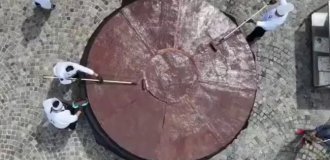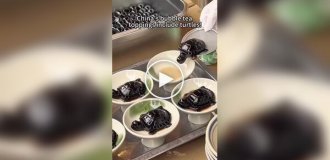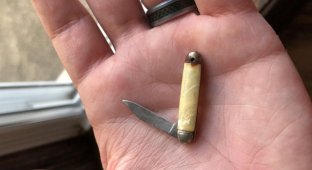Mano Po - How to Show Love and Awe in Filipino Style (5 photos)
There is one very touching gesture in the Filipino culture, which even a European unfamiliar with this gesture feels his heart clench. Because sometimes the language of the human body finds universal forms of expression of the most sincere feelings. I am talking about mano po. 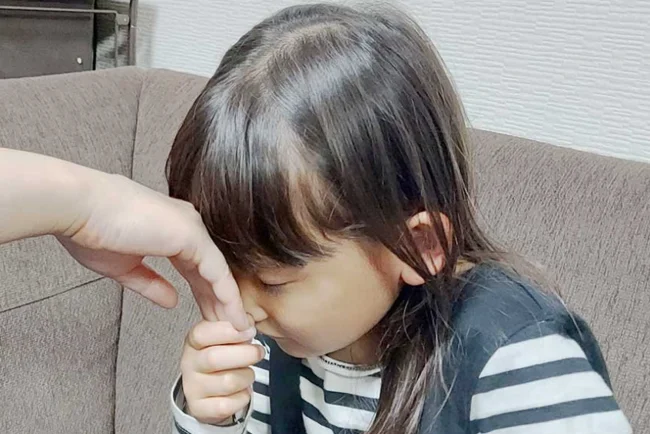
A girl makes her first mano po
What is Mano Po
The word "mano po" comes from the Spanish "mano", which means "hand", and "po", which is a polite word. "Mano po" is taking the hand of an elder and gently pressing the back of the hand to the forehead as a sign of respect and reverence. This is done when greeting or asking for blessings from older family members such as parents, grandparents, or other respected individuals in the community. So, this gesture is a mixture of great respect for elders and tender love for your grandmother. Not just respect and recognition of authority, which is why it is so touching. 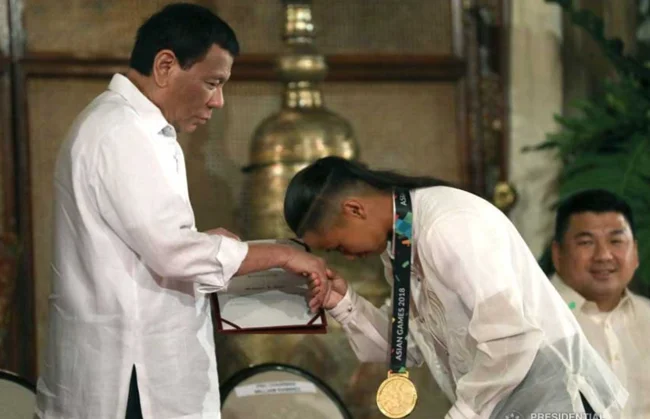
Some skater champion doing the mano po to President Duterte
The "Mano po" has been a symbolic gesture of love, gratitude, and respect for Filipinos for hundreds of years. Because mano po was practiced before the colonial era. At that time, the Philippines consisted of various indigenous groups with unique cultural practices. That is when the most famous gestures in the culture were born. But many unique gestures died during the Spanish colonization due to the separation of families and tribes. But mano po flourished because the Spanish brought Catholicism to the country. And this respectful gesture fit very well with the Catholic culture, and was supported by non-natives, adopting it from the Filipinos.
Ancient Meaning of Mano Po 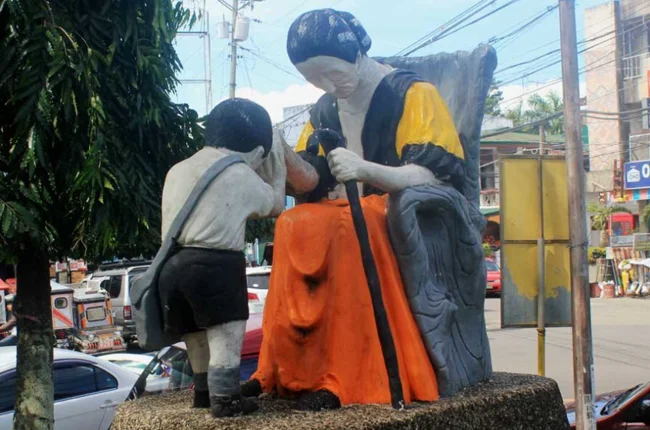
A monument on one of the streets of the capital of the Philippines
Even in tribal times, it was believed that by touching the forehead to the hand of an elder, the younger generation acknowledges his wisdom, experience, and contribution to the family and society. This is an act of humility and recognition of the wisdom of the elders. In addition, "mano po" is a way to ask for blessings and good wishes from the elders. It is believed that touching their hands can bring good luck, patronage, and protection. 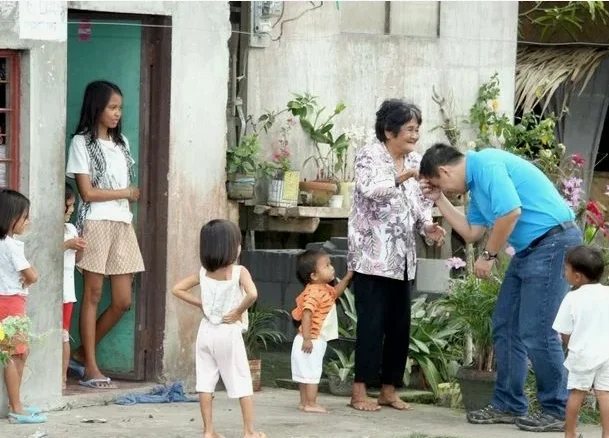
The eldest grandson makes mano for his very elderly grandmother
Today, family relationships are changing, and the elderly no longer decide how the entire tribe and family should live. But the tradition of mano po has become so deeply ingrained in the culture of the Philippines that it remains in every family. Mano po is made at large family gatherings, necessarily at weddings (for example, the bride thanks her grandmother for her care with this gesture, preparing to start an independent family), and at religious holidays. You can make mano po not only for your grandmother. If some elder means a lot to you, this is a very touching way to show that he is like a relative to you. 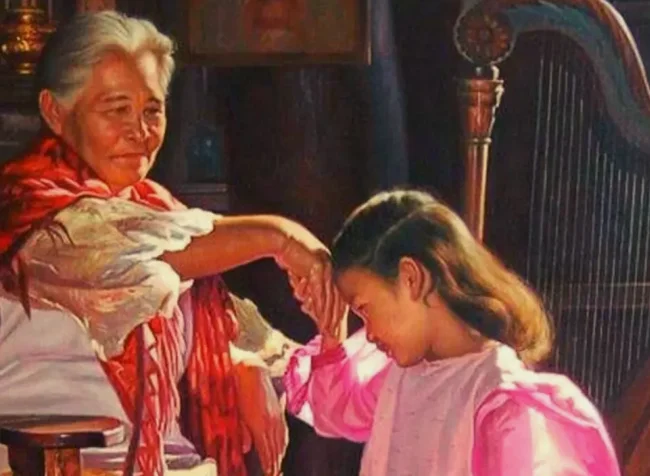
Mano po in Philippine art
